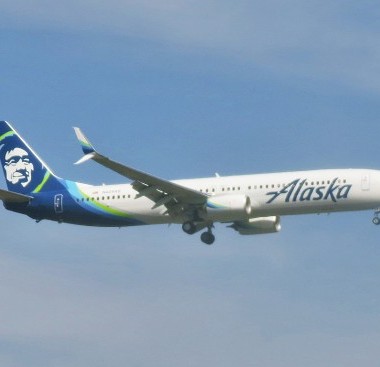EasyJet restores dividend, confident in rebound despite war
EasyJet Plc signaled confidence in a sustained recovery from the Covid-19 pandemic, reinstating its dividend even as the conflict between Israel and Hamas disrupts air travel in the short term.
Bookings are strong for the summer 2024 high season, the UK budget carrier said Tuesday as it reported results for the just-ended fiscal year. With competitors struggling to field aircraft, EasyJet said its overall outlook for the coming year is positive, with capacity set to rise 8% in the second half of the year ending in September 2024.
EasyJet plans to issue a dividend of 4.5 pence per share early next year, and raise it from there after suspending the payout during the Covid-19 crisis. For the new fiscal year, the carrier is targeting a dividend equal to 20% of after-tax profit. It follows Ryanair Holdings Plc, which said this month it will pay a regular dividend for the first time.
Airlines have stormed back from the downturn brought on by the pandemic, which disrupted travel and strained balance sheets worldwide. EasyJet on Tuesday reported record second-half profit, and said it’s well positioned for the coming summer season. The shares rose as much as 4.8%.
EasyJet has so far managed to minimize the supply-chain setbacks that have led Ryanair and Wizz Air Holdings Plc to warn that aircraft shortages will slow growth over the coming year. Ryanair is struggling to get hold of Boeing Co. 737 Max planes ahead of the summer 2024 high season, while Wizz trimmed its profit forecast because of an issue with Pratt & Whitney engines grounding many of its Airbus SE A320-series jets.
While EasyJet also operates the A320 — a narrowbody workhorse for the industry — it uses a different engine from CFM International that isn’t affected by the Pratt groundings hitting airlines worldwide.
The coming year “looks quite favorable for ourselves,” Chief Executive Officer Johan Lundgren said on a media call, adding that supply constraints across Europe will also help support demand.
EasyJet reported profit before tax of £865 million ($1.1 billion) for the second half of fiscal 2023. The shares gained 2.5% as of 10:20 a.m. in London. The stock has advanced 28% this year.
Conflict’s Impact
Like other airlines, EasyJet is also seeing an at least temporary impact from the conflict between Israel and Hamas. This has hurt sales over the short term and will prevent the budget airline from narrowing its losses this winter.
Demand was strong entering October but bookings and flight searches dropped off amid the hostilities, Lundgren said in a Bloomberg TV interview. He said summer 2024 bookings haven’t been affected.
“I think it’s more of a consumer confidence in the short term that has impacted not only this sector but other sectors,” Lundgren said.
Rising fuel costs have also hurt profit, with expenses up 20% in the current first quarter, Lundgren said. The impact is trending down through into the first quarter, he said.
Flights to Israel and Jordan, where services have been paused, and to Egypt make up about 4% of capacity — 10% when the distance of flights is factored in.
Customer reaction to the conflict between Israel and Hamas is playing out in a similar way to the temporary pullback after Russia invaded Ukraine, Lundgren said.
Similar Stories

Chapman Freeborn agrees partnership with Portuguese multimodal logistics specialist
View Article
Cathay is ready for the commissioning of the three-runway system at Hong Kong International Airport
View ArticleUnited Airlines Holdings Inc. upgraded To ‘BB’; outlook stable
• United Airlines Holdings Inc. is on track to generate credit measures in line with our previous upside rating threshold this year, and we expect improvement in 2025. • The…
View Article
WorldACD Weekly Air Cargo Trends (week 46) - 2024
View Article
Freightos and E2open integrate to simplify air cargo bookings
View Article
Citywide sale-leaseback highlights Phoenix Airport submarket
View ArticleGet the most up-to-date trending news!
SubscribeIndustry updates and weekly newsletter direct to your inbox!





